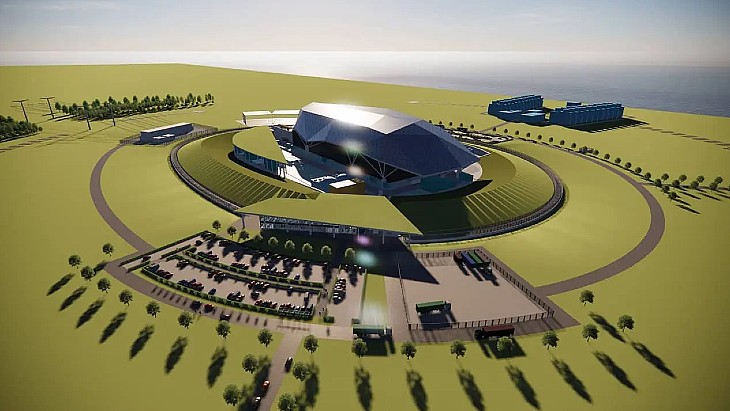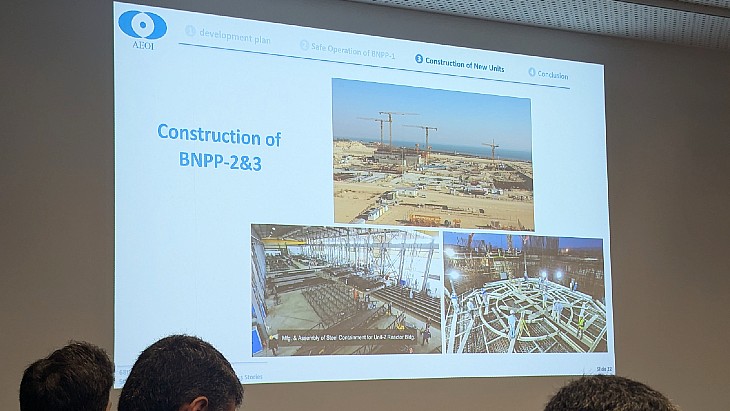Baltic nuclear plant brought forward
![]() Russia's Rosatom has given approval for construction of the 2400 MWe Baltic nuclear power plant in Kaliningrad, the separate part of Russia west of the Baltic States.
Russia's Rosatom has given approval for construction of the 2400 MWe Baltic nuclear power plant in Kaliningrad, the separate part of Russia west of the Baltic States.
Russia's Rosatom has given approval for construction of the 2400 MWe Baltic nuclear power plant in Kaliningrad, the separate part of Russia west of the Baltic States.
Sergei Kiriyenko, director general of the Rosatom corporation, has signed a decree effecting this and with a view to starting preliminary work in 2009. This follows a cooperation agreement signed by Kiriyenko and Kalinin Region governor Georgiy Boos in April.
.jpg)
Sergei Kiryenko (right) met then President-elect Dmitry Medvedev in the Kremlin on 14 April. The Kaliningrad plant was announced three days later (Image: RIA Novosti)
Whereas Kaliningrad (or the Baltic Nuclear Power Plant) was previously slated as a twin AES-92 plant with two 1000 MWe VVER pressurized water reactors, similar to those planned for Belene in Bulgaria, it is now to be the more modern and larger VVER-1200, also known as AES-2006. Another change to the plan is to commission the first reactor a year earlier, 2015 instead of the following year.
St Petersburg Atomenergopoekt has been named as the project designer, and the site was earlier identified as Neman, very close to the Lithuanian border.
While Russia's electric utility Rosenergoatom will be the customer, a large part of the rationale appears to be for electricity exports to neighbouring countries, Poland being the most obvious customer, though exports to Germany and St Petersburg are proposed. The plant also appears to be a direct rival to the plan to replace Lithuania's Soviet-era Ignalina reactors with a new plant called Visaginas. That plan is backed by Lativa, Estonia and Poland in addition to hosts Lithuania.
Furthermore, in an innovation for Russia, up to 49% of the equity is being offered to European utilities. Czech power utility CEZ has expressed interest in the project. The first unit is expected to cost about $4 billion and the second one half that, giving an anticipated project cost of $6 billion.
_92619.jpg)

_84504.jpg)







_88592.jpg)

